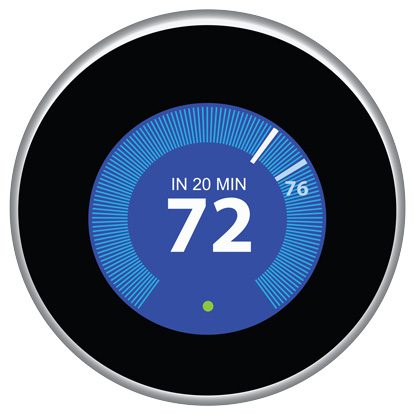10 Small Ways to Go Green
When it comes to the environment, little steps can still make a big difference.
[dropcap]It[/dropcap] isn’t necessary to overhaul your lifestyle in order to live in an environmentally conscious way. Here are 10 small steps towards living a “greener” life.
 Shut it down.
Shut it down.
One very small way to save energy is turning off your computer at night. The U.S. Department of Energy reports that even though there is a small energy surge when a computer starts up, “this small amount of energy is still less than the energy used when a computer is running for long periods of time.” If you hate waiting for your computer to boot up the next day, set a timer for it to turn on automatically a few minutes before you use it.
![bulb-shutterstock_217493680-[Converted]](data:image/gif;base64,R0lGODlhAQABAAAAACH5BAEKAAEALAAAAAABAAEAAAICTAEAOw==) Have a bright idea.
Have a bright idea.
Go fluorescent and save on your energy bill. Energy Star reports that compact fluorescent light bulbs (CFLs) use 75 percent less energy than traditional light bulbs, and that “if every home in America replaced just once incandescent light bulb with an Energy Star qualified CFL, we should save enough energy every year to light 3 million homes and prevent greenhouse gas emissions equivalent to those from about 800,000 cars.”
Less is more.
Purge and organize your home (and office) to save on future expenses. When you know where your things are, you’re less likely to purchase things you already have. Owner of Organized Living Anne Spero adds that when you are organized, you’ll feel “as if burdens have been lifted” and “a renewed sense of peace and motivation.” (See “Minimize Your Things, Maximize Your Life” for more.)
 Get smart.
Get smart.
Board Chair for U.S. Green Building Council (USGBC) Oklahoma Craig Immel says one way to live smarter and greener is to invest about $250 in a Wi-Fi-enabled smart thermostat. “New thermostats allow you to easily manage your heating and cooling system to make sure your home is comfortable when you are there, and that you are not wasting money when no one is home,” Immel says. “Heating and cooling costs are usually about 50 to 70 percent of the average home’s utility bill, so these thermostats pay for themselves pretty quickly.”
Ditch your wheels.
Instead of using your own personal vehicle, try public transportation once a week, or hit the streets on your bike. You’ll save money on gas and get some exercise.
![water-temp-shutterstock_159161375-[Converted]](https://b1523572.smushcdn.com/1523572/wp-content/uploads/2016/03/water-temp-shutterstock_159161375-Converted.jpg?lossy=1&strip=0&webp=1)
Chill out.
Wash your clothes in cold, or even warm, water. The Alliance to Save Energy states that almost 90 percent of the energy consumed by a washing machine goes to heating water, and that “each household that makes the switch to cold-water washing eliminates about 1,600 pounds of carbon dioxide emissions a year.”
Keep those clippings.
Executive Director of Keep Oklahoma Beautiful Jeanette Nance says homeowners should think twice before bagging their grass clippings. “Let the grass clippings decompose in your yard rather than bagging them and sending them off to the landfill,” Nance says.
![mail-shutterstock_318049769-[Converted]](data:image/gif;base64,R0lGODlhAQABAAAAACH5BAEKAAEALAAAAAABAAEAAAICTAEAOw==) Lighten your load.
Lighten your load.
Reducing your junk mail and unnecessary mailings cuts down on wasted paper. Homeowners can pay nearly every utility bill online now, and often by simply changing your bank account settings, you can also replace paper account statements with the online version. (Just don’t forget about tip #1 when using your computer!)
Spread farmer love.
When you buy local produce, your food doesn’t have to travel so far. The website eatwild.com lists over 25 farms that meet their criteria for producing grassfed meat, eggs and dairy products in Oklahoma.

Fill ‘er up.
Run the dishwasher only when it’s full to conserve water. Or better yet, commit to handwashing your dishes once a week.























 Shut it down.
Shut it down. ![bulb-shutterstock_217493680-[Converted]](https://b1523572.smushcdn.com/1523572/wp-content/uploads/2016/03/bulb-shutterstock_217493680-Converted.jpg?lossy=1&strip=0&webp=1) Have a bright idea.
Have a bright idea.  Get smart.
Get smart. ![mail-shutterstock_318049769-[Converted]](https://b1523572.smushcdn.com/1523572/wp-content/uploads/2016/03/mail-shutterstock_318049769-Converted.jpg?lossy=1&strip=0&webp=1) Lighten your load.
Lighten your load. 